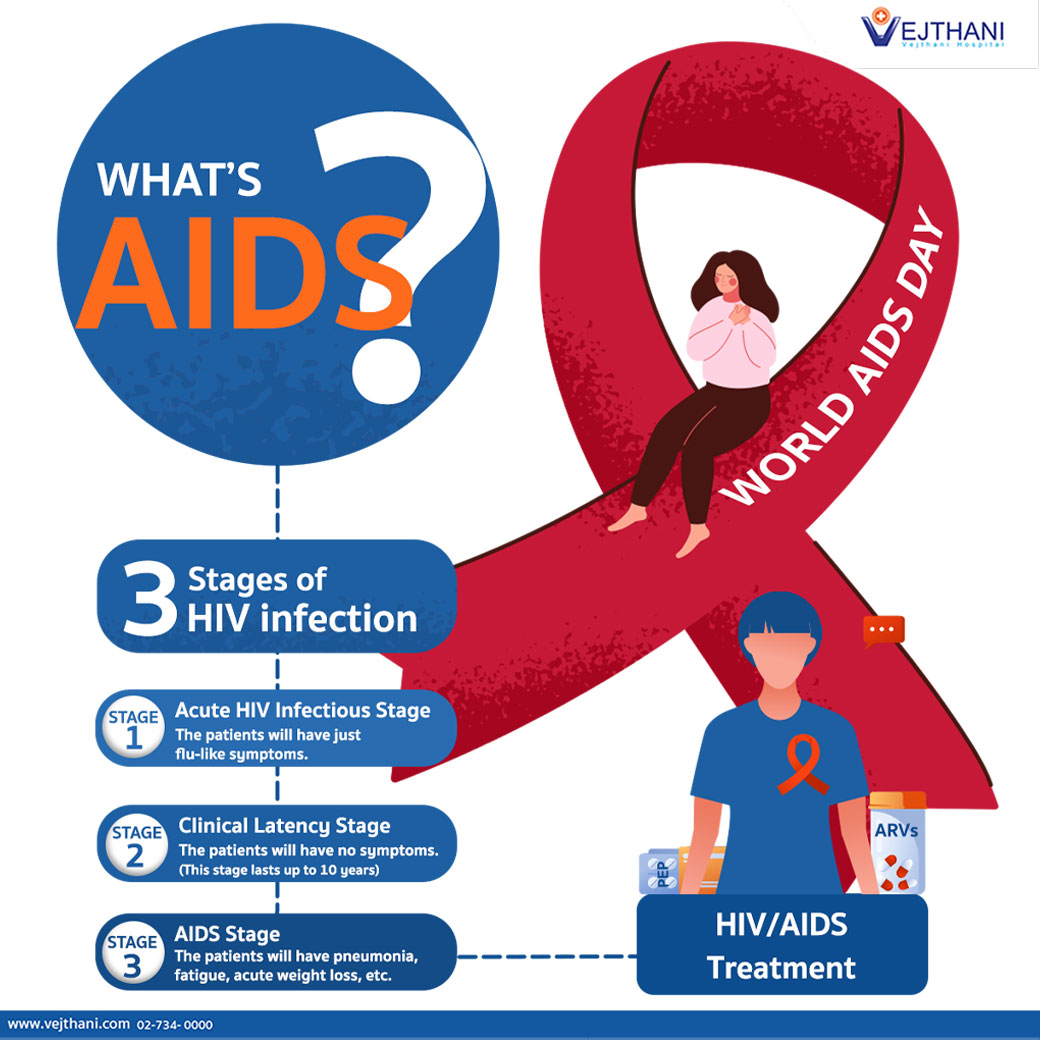Caution: Second Dengue Infection Can Be More Severe Than the First
Dengue, a viral infection, tends to outbreak during the rainy season. It is caused by the dengue virus, which is transmitted to humans via

AIDS (Acquired Immunodeficiency Syndrome) is the final stage of HIV infection. HIV or Human Immunodeficiency Virus is an infectious virus that affects the immune system, it will weaken the immune function to fight against invading diseases and then attack the entire body. HIV can be transmitted through blood, semen, vaginal fluid, and breast milk, or by mother-to-child infection during pregnancy. However, HIV can be treated if early detected and receive the medication strictly and continuously.
Dr. Amorn Saelao, an infectious disease doctor of Vejthani Hospital mentioned that most of the patients who are infected with HIV probably don’t know that they are infected because the patients will have no noticeable symptom but experience just flu-like symptoms such as fever, sore throat, and headache during the early stage of infection.
Typically, the doctor will use Antiretroviral Drugs (ARVs) in HIV/AIDS treatment. There are several types of ARVs and it works in different ways. ARVs work by inhibiting the viral enzymes that are critical to the HIV replication cycle. Therefore, it can reduce the risk of transmission and allows the patients to live longer. Furthermore, it is important to get tested because as what they say “the earlier, the better”. If you are concerned that you may have contacted HIV, do not hesitate to get tested and receive the Post-Exposure Prophylaxis drugs (PEP) within 72 hours in order to reduce the risk of infection. Those who are at risk or need to be in contact with HIV/AIDS patients can also receive the Pre-Exposure Prophylaxis drugs (PrEP) to prevent the infection, said Dr. Amorn.
